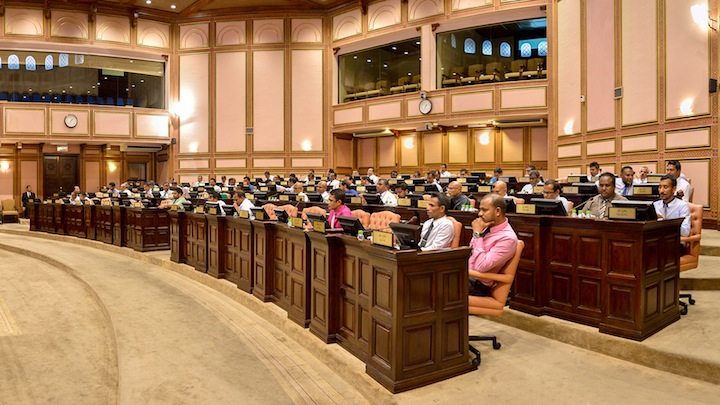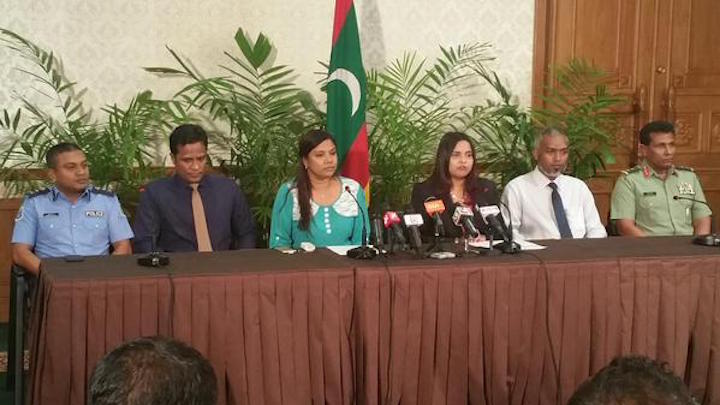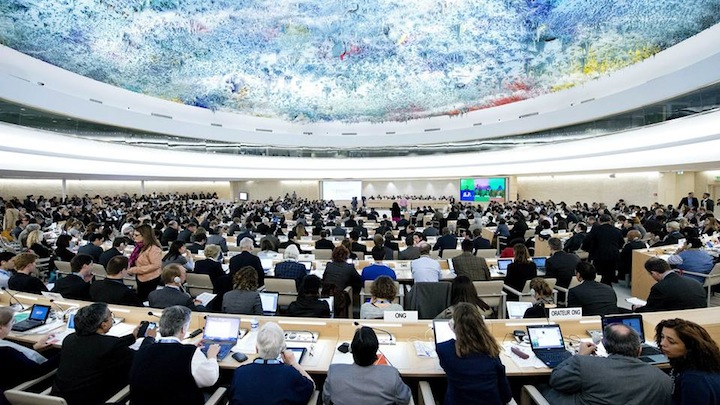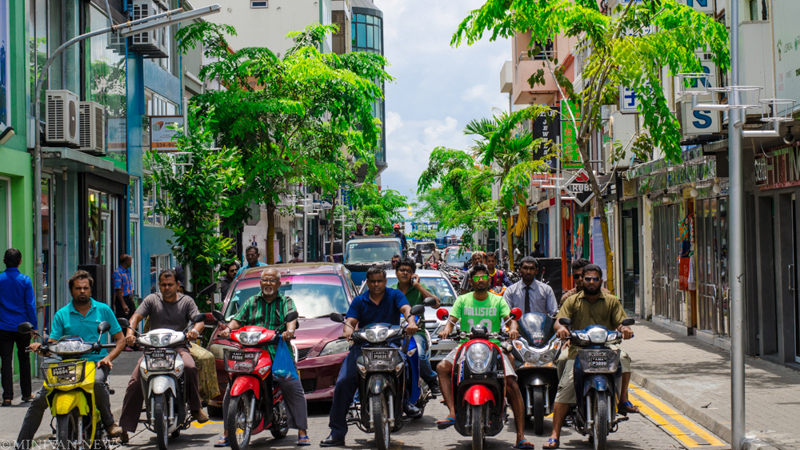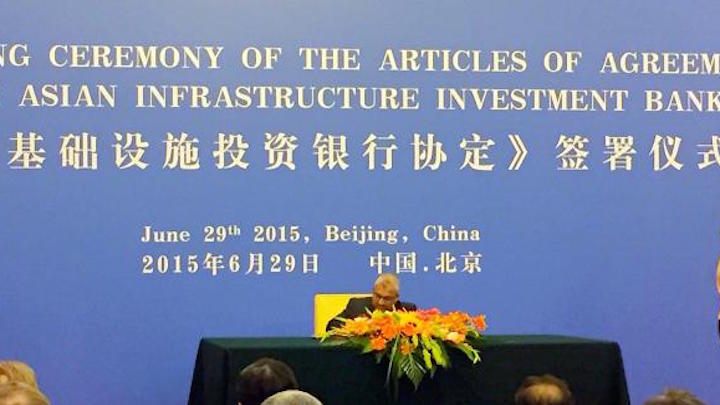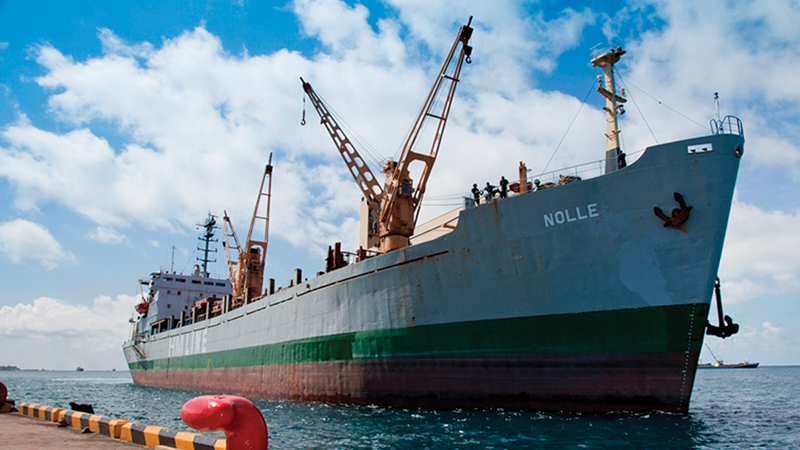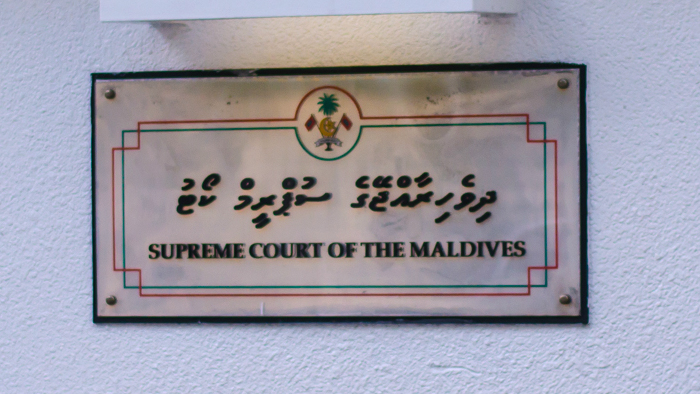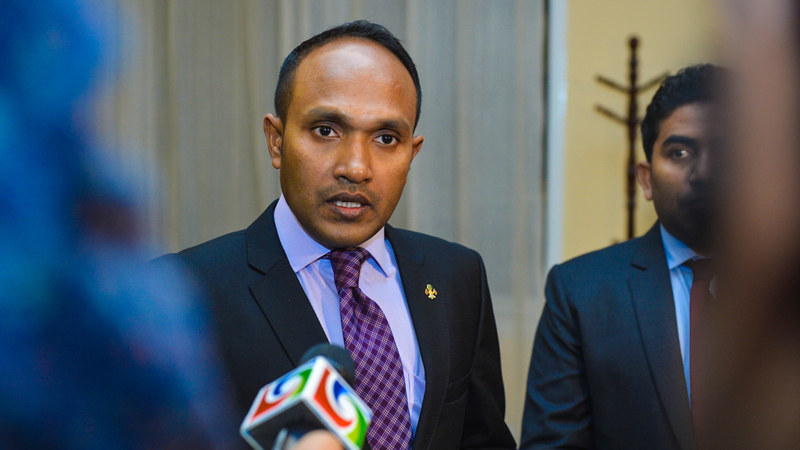The ruling Progressive Party of Maldives (PPM) has submitted a resolution to parliament today with 61 signatures to impeach Vice President Dr Mohamed Jameel Ahmed.
“We submitted the resolution to the parliament today with 61 signatures collected from PPM, Maldives Development alliance (MDA), Jumhooree Party (JP), and the Maldivian Democratic Party (MDP),” said PPM Baarah MP Ibrahim Sujau.
A two-third majority or 57 votes will be needed to remove the vice-president from office. The ruling coalition controls 48 seats in parliament and has secured the opposition’s backing.
Six MDP MPs and five JP MPs have signed the resolution, Sujau said.
The MDP MPs include Mohamed Nazim, Abdul Gafoor Moosa, Ibrahim Naseer, Ali Nizar, Ahmed Marzooq and Mohamed Abdul Kareem.
The five MPs to sign from JP are Ilham Ahmed, Ahmed Mubeen, Hussein Shahudhee, Abdulla Ahmed and Ibrahim Hassan.
“A lot more opposition parliamentarians expressed their interest in signing the resolution, but they could not as a lot of them are abroad at the moment,” Sujau said.
Sujau said he believes the resolution will pass with an overwhelming majority of 78 votes from the 85-member house.
“The numbers send a clear message to the vice president that he should resign before he is impeached by the parliament,” he said.
The ruling coalition is seeking to replace Jameel with tourism minister Ahmed Adeeb. Pro-government MPs have publicly accused Jameel of incompetence and disloyalty.
Last week, the parliament passed the first amendment to the constitution with overwhelming multi-party consensus, or 78 votes in favor, to lower the age limit for the presidency from 35 to 30 years. Adeeb is now 33.
The opposition’s backing for the constitutional amendment was widely perceived to be part of a deal made in exchange for jailed ex-president Mohamed Nasheed’s transfer to house arrest.
VP Jameel ge ithubaaru neiy kamah PPM PG gulhigen hushahalhaa Qaraar ah 61 Soe libijje. Adhi Miadhu Majileehah vannae pic.twitter.com/K6utLLrlDU
— Ahmed Nihan (@ahmed_nihan) June 30, 2015
61 Soe aai eku VP Jameel ge ithubaaru neiy kamuge Qaraar Majleehah Rasmee koh PPMMDA in Majileehah hushahalhaifi. pic.twitter.com/9FvqxX2dAd
— Ahmed Nihan (@ahmed_nihan) June 30, 2015
Some opposition politicians claim President Abdulla Yameen is fatally ill and wants a more loyal deputy ahead of a life threatening surgery. The government has denied rumours of the president’s health.
Jameel is yet to speak publicly about his imminent impeachment. The constitution states that the vice president must be given a 14-day notice and the right to answer the charges before the resolution is put to a vote.
Dr Jameel left to Sri Lanka last week after President Yameen authorised a medical leave. A senior PPM MP told Minivan News yesterday that Jameel was due to return three days ago, but instead departed for the UK without informing the president’s office.
The MP said President Abdulla Yameen has asked the vice president to return to the Maldives and answer to the party’s parliamentary group about his impeachment.
“We have tried contacting him repeatedly to ask him to meet with the parliamentary group. But he has not responded. We are trying to bring our problems to him and trying to find a mutual solution,” said the PPM MP.
Meanwhile, the parliament yesterday approved changes to its rules of procedure to fast-track the process of impeaching the vice president.
The new rules state the parliament can vote on removing the vice president without an investigation. The rules previously stated that a committee must investigate allegations against the vice president before a vote.
The amendment to the standing orders was passed with 52 votes in favour and 14 against. One MDP MP and several JP MPs joined the ruling coalition to approve the changes.
 (0)Dislikes
(0)Dislikes (0)
(0)